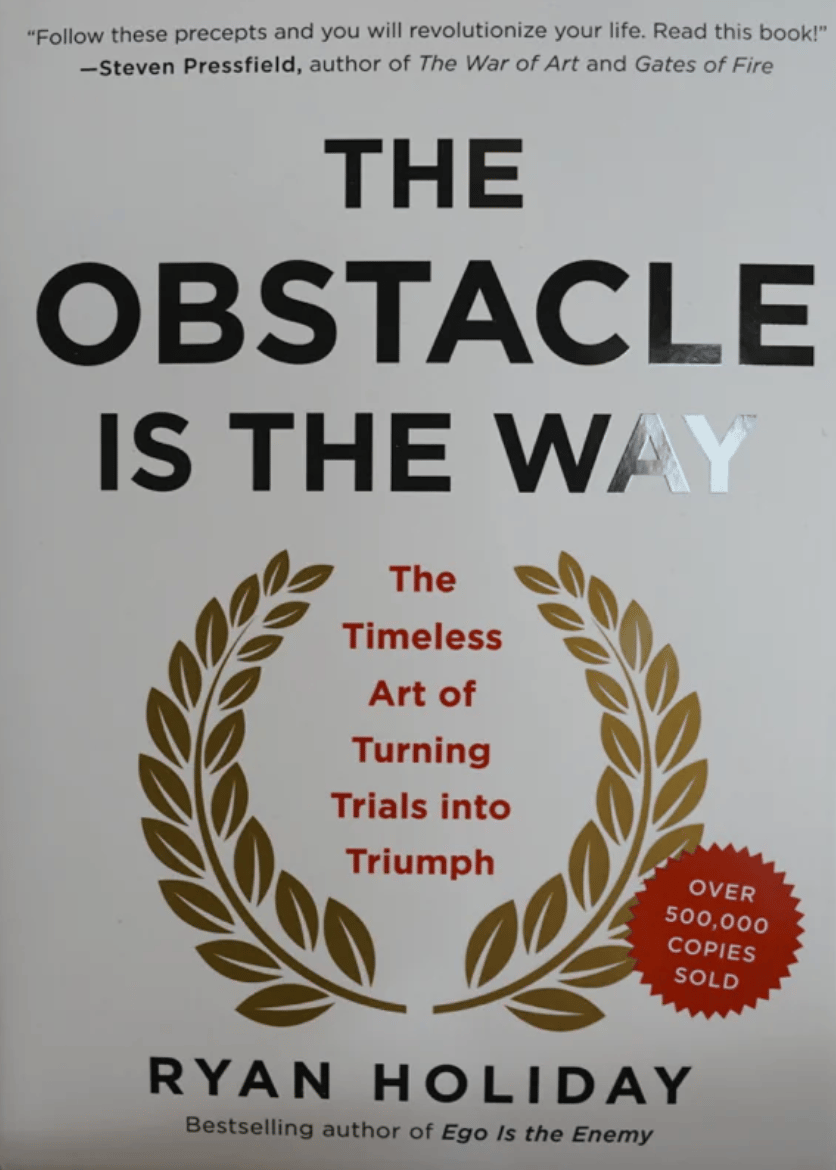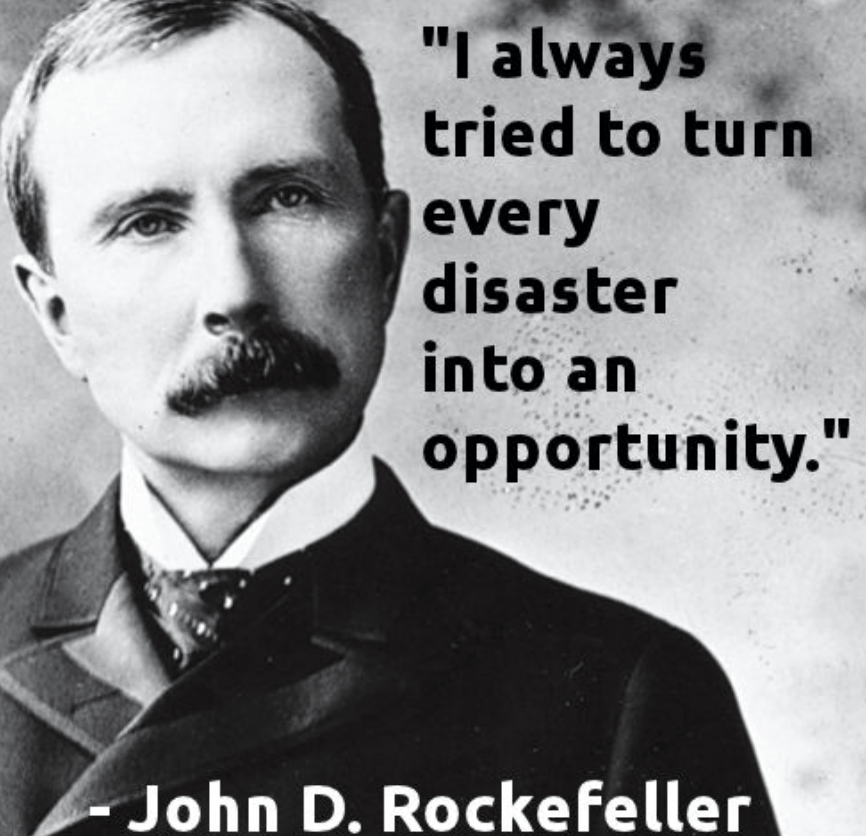Hi!
We all face challenges in our lives. Things don’t always go the way that we want. That is why this week we are focusing on mindset, and we are reading The Obstacle Is the Way by Ryan Holiday.
“This thing in front of you. This issue. This obstacle this frustrating, unfortunate, problematic, unexpected problem preventing you from doing what you want to do.
That thing you dread or secretly hope will never happen. What if it wasn't so bad?
What if embedded inside it or inherent in it were certain benefits-benefits only for you? What would you do? What do you think most people would do?”
This book has helped me in many ways. It has truly changed the way that I see the world.

Estimated read time: 5 minutes
Introduction
This book is all about transforming obstacles into advantages and turning adversity into opportunity. As Marcus Aurelius once said, "The impediment to action advances action. What stands in the way becomes the way." In other words, the very things that seem to be blocking our path to success can actually be the path to success.
Now, I know what you might be thinking: "Yeah, right. How can I possibly turn my problems into opportunities?" But that's where this book comes in. We're going to break down the three critical steps to overcoming obstacles: Perception, Action, and Will. But don't just take our word for it. Let's take a look at some examples of people who have put these principles into practice. Today we learn more from John D. Rockefeller and Rubin Hurricane Carter.
Perception is all about changing the way we look at our problems. It's not about seeing the silver lining or being a cup-half-full kind of person, but rather being clear-eyed, logical, and prepared for whatever life throws at us. It's about approaching obstacles in the most effective way possible and using them as a path to success.
Action is about actively breaking down obstacles and turning them into opportunities. It's about taking deliberate and purposeful steps in response to challenges, rather than just passively perceiving them. Remember, perception without action won't bring us much. We need to take that path and make things happen.
Will is all about cultivating the energy, determination, and resilience to keep going even when the going gets tough. It's about accepting defeat and difficulty with grace and using setbacks as opportunities for growth and self-improvement.
Perception
Alright, let's talk about perception. What is it? It's basically how we see and understand what's going on around us, and the meaning we give to events.
And here's the thing - our perceptions can either be a source of strength or of great weakness. If we let our emotions, subjectivity, and shortsightedness control how we see things, we're basically just adding to our troubles.
But, as the ancient philosophers practiced, we can learn to limit our passions and control how they impact our lives. This takes skill and discipline, but it's worth it.
By learning to bat away the pests of bad perceptions, filter out prejudice, expectation, and fear, and separate reliable signals from deceptive ones, what we're left with is truth.
And this is where things get really interesting. Because while others might be getting excited or afraid, we can remain calm and imperturbable. We'll see things simply and straightforwardly, as they truly are - neither good nor bad. And that, my friends, is a powerful advantage in the fight against obstacles.
Rockefeller - The discipline of perception
Before, Rockefeller became the oil kingpin/robber baron, John D. Rockefeller was a simple bookkeeper and aspiring investor in Cleveland, Ohio.
He started his career in 1855 at the age of sixteen, which he later celebrated as "Job Day" for the rest of his life. His job paid him fifty cents a day, which was okay until the Panic of 1857 hit. The massive national financial crisis, which originated in Ohio and hit Cleveland particularly hard, caused businesses to fail and the price of grain to plummet across the country. This led to a crippling depression that lasted for years.
But instead of running for the hills, Rockefeller kept his cool. He didn't let the economic downturn get to him. He had sangfroid: unflappable coolness under pressure. He could keep his head while he was losing his shirt, unlike everyone else.
Rather than throwing in the towel, Rockefeller saw the financial crisis as an opportunity to learn, a baptism in the market. He saved his money and watched what others did wrong. He realized that the market was unpredictable and often vicious, and only the rational and disciplined mind could hope to profit from it. He learned that speculation led to disaster and that he needed to always ignore the "mad crowd" and its inclinations.
When a group of investors offered to invest approximately $500,000 at his direction if he could find the right oil wells to invest in, Rockefeller set out to tour the nearby oil fields. However, a few days later, he shocked his backers by returning to Cleveland empty-handed, not having spent or invested a single dollar of the funds. Even though everyone was excited about the opportunity, it didn't feel right to him at the time. So he refunded the money and stayed away from drilling.
Rockefeller's success story is a testament to his ability to keep his head while others were losing theirs. It's a reminder that even in times of crisis, there is always an opportunity to learn and grow. So let's take a page out of Rockefeller's book and stay cool under pressure. After all, panicking never got anyone anywhere.

Rubin Carter - Recognize your power
Choose not to be harmed and you won't feel harmed. Don't feel harmed-and you haven't been.
In this powerful quote from Marcus Aurelius, we are reminded that our perception of events shapes our experience of them. If we choose not to see something as harmful, we won't feel harmed. In essence, it is our perception that gives us power over any situation.
Rubin "Hurricane" Carter was a boxer at the height of his career when he was wrongly accused of a horrific crime: triple homicide. He was eventually sentenced to three life sentences, and his life came crashing down. However, instead of surrendering to despair, Carter chose to assert his power in the only way he could: by controlling his perception of the situation.

Even though he was in prison, deprived of nearly everything, he understood that he still had his mind and his thoughts, and he could use them to his advantage. He refused to be treated like a prisoner. Didn’t wear the prison uniform, didn’t eat the food, didn’t accept visitors, or even go to parole hearing. He chose to focus his energy on his legal case and using every waking minute to read books on law, philosophy, and history.
“Looking the warden in the eye, Carter proceeded to inform him and the guards that he was not giving up the last thing he controlled: himself. In his remarkable declaration, he told them, in so many words, "I know you had nothing to do with the injustice that brought me to this jail, so I'm willing to stay here until I get out. But I will not, under any circumstances, be treated like a prisoner because I am not and never will be powerless."
Despite spending 19 years in prison and enduring two trials, Carter never lost sight of his power to control his perception of the situation. He never let the injustice of his sentence rob him of his beliefs or his choices.
This story is a powerful reminder that we have the power to choose how we perceive and react to any situation. Our perceptions are completely within our control, and we can choose to see even the most difficult situations as opportunities for growth and improvement. As Shakespeare said, "Nothing either good or bad, but thinking makes it so."
If you have a book that you would like us to break down let us know.
See ya tomorrow.
Best,
Camillo